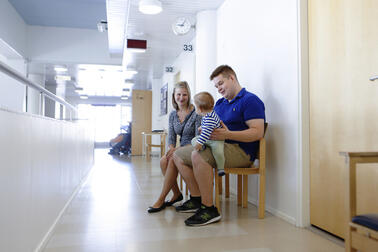Authentic interaction via video
For Social Instructor Sara Mahlamäki, providing remote services meant stepping into new territory – but it has now become second nature.
“I no longer really differentiate between remote and in-person work. At first, I was unsure, but now it all feels natural. In my experience, real connection can be achieved just as well via video as in person,” Sara says.
Still, she notes that some clients – or their support networks – are sceptical.
“Relatives may worry that remote services aren’t effective and push for traditional home visits. But remote sessions can be highly motivating – for example, when it comes to cleaning or managing daily tasks. They’re a valuable addition, even though home visits absolutely still have their place.”
Sara emphasises that remote services are only offered when the client is willing and a professional assesses them as suitable. The first meeting is always held in person, at the client’s home, to allow for face-to-face contact and an initial assessment of the living environment. Clients receive guidance on using the service and data security, and a computer is provided if needed.
Good experiences pave the way forward
Remote services have proven especially helpful for clients whose mental health is stable and who are capable of handling day-to-day matters. However, every client is different – and the only way to know if remote support will work is to give it a try. The most important ingredients for success are openness and a positive attitude from both the client and the professional.
Feedback from other clients and professionals has echoed Noora’s experience: initial doubts often give way to appreciation. Many clients have said that remote meetings are easier and less stressful than in-person ones – and that they’ve fostered even deeper connections with professionals.
Clients have also reported that remote meetings make it easier to schedule support and that they feel more empowered as they take a more active role in managing their own affairs.
“At first, I was afraid I couldn’t handle things on my own,” one client shared. “But the remote meetings made me take the lead – and I realised I could.”
“They’ve helped me talk things through and given me a reason to get up and move. It makes a real difference when you can meet more often than with in-person visits – especially if you’re feeling isolated,” said another.
Noora’s name has been changed to protect her privacy.
Text: Jaana Suokas and Sari Sillman
Helsinki’s remote services for mental health rehabilitants were developed as part of the Sustainable Growth project, which promotes wellbeing and prevents social exclusion. The project is part of the EU-funded Sustainable Growth Programme for Finland, coordinated by the Ministry of Social Affairs and Health and implemented across Finland’s wellbeing services counties and in Helsinki.






